July 2017 Sustainable Development
Read the articles selected in July 2017
Scenario 6: Sustainable Europe for its citizens
Source: http://www.asvis.it/, 25 July
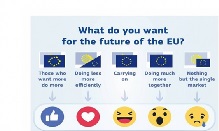
In this project sketched out by SDG Watch Europe, Europe ensures by 2025 policy coherence for sustainable development enforcing the standards health and quality of life of citizens, to integrate them in a more active and participatory democracy.
Talking sustainability with Dr. Gary Adamkievicz (Part 1)
Source: https://green.harvard.edu/
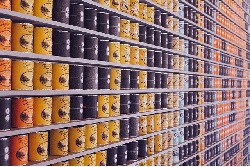
Climate change is not only related to consumption of fossil fuels, but also with the food we eat. Our daily food decisions have a direct environmental impact, and have personal consequences on our health: 14% of chronic diseases in the USA are diet-related, and 14% of greenhouse gas emissions come from the livestock sector.
Read more:
Talking sustainability with Dr. Gary Adamkievicz (Part 2)
Source: https://green.harvard.edu/
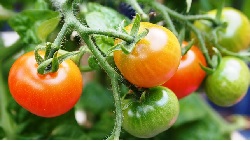
Talking about the sustainability of food doesn’t need myths as the absolute goodness of local food and vegan diet, while it needs including an ethic of food production, from animal welfare to workers’rights.
Read more:
Why so much of the world is stuck in a “poverty trap”
by Giorgia Guglielmi
Source: Science, 25 July
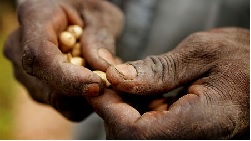
800 million people live in extreme poverty, regardless of their work efforts. A study shows that the root of this trap is in the diseases, whether of humans, animals, or crops. An effective solution is in increasing access to health care by reducing health care costs and preventing disease transmission through vaccine coverage.
Read more:
http://www.sciencemag.org/news/2017/07/why-so-much-world-stuck-poverty-trap
France could face “mega-heatwaves exceeding 50 degrees Celsius by 2100
by Ian Johnston
Source: The Independent, 21 July

Standing to a recent study, after decades of global warming, the summer temperatures in France could rise from 6C to 13C compared to the historic records like those observed in 2003 and could exceed the record maximum value of 50C by the end of this century.
World Economic and Social Survey 2017
Source: http://www.un.org
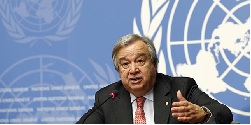
The World Economic and Social Survey is the oldest publication on development policy analysis that has delivered in its long history over seventy years a broader and interdependent understanding of development. This year the report is dedicated to the implementation of the 2030 Agenda.
SDG Index and Dashboards Report 2017
Source: http://www.asvis.it, 13 July

This Oecd report analyses the major challenges faced by every country in achieving the SDGs benchmarking and monitoring progress, as well through a series of consistent indicators measuring the positive and negative impact almost rich countries’ action have on poor countries' ability to achieve the Goals.
Read more:
http://www.sdgindex.org/assets/files/2017/2017-SDG-Index-and-Dashboards-Report--full.pdf
Progress on Drinking Water, Sanitation and Hygiene
Source: https://www.unicef.org
The WHO/UNICEF Joint Monitoring Programme for Water Supply, Sanitation and Hygiene has contributed to introducing the SDGs 1 and 6 in the 2030 Agenda and is responsible for monitoring the access to drinking water and basic services. This report uses updated ladders especially related to SDG 1 and 6.
Read more:
https://www.unicef.org/publications/files/Progress_on_Drinking_Water_Sanitation_and_Hygiene_2017.pdf
OECD-FAO Agricultural Outlook 2017-2026
Source: http://www.asvis.it/, 12 July
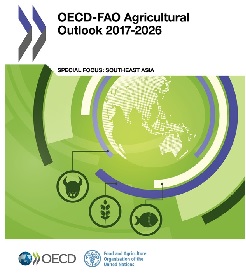
This report, which assesses alternative policies to ensure the availability in the world of healthy food with a sustainable and responsible agricultural production, offers projections for global and national agricultural markets discussing the uncertainty which might affect price projections.
Read more:
Slow climate mode reconciles historical and model-based estimates of climate sensitivity
by Christian Proistosescu and Peter Huybers
Source: Science, 5 July
The conflict between estimates of how much the Earth will warm in response to a doubled carbon dioxide in the atmosphere has been resolved through a mathematical model which takes in account the different speeds of Planet’s warming in different regions.
La mayorìa de los europeos minimiza el papel humano en el cambio climático
by Javier Salas
Source: El País, 11 July

In spite of scientific evidence, just 46% of the Europeans blame human activities for climate change. A wrong communication leads to confusing future previsions with the current present, fomenting powerlessness and inaction.
Read more:
https://elpais.com/elpais/2017/07/11/ciencia/1499769287_292621.html
How cynics are deepening the climate change divide
Source: The Guardian, 8 July
Post-truth politics doesn’t like certainties: though there is scientific unanimity about the fact that climate change is man-made, there are still reasons for skepticism. As climate change can be a convenient truth, skepticism too is a political weapon, just it is driven by cynism.
High-end climate change in Europe
by Pam Berry, Richard Betts, Paula Harrison, Augustín Sanchez-Arcilla
Source: http://www.asvis.it/, 10 July
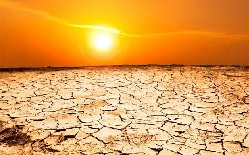
Experts both in natural and social sciences examine in this report the implications and risks of global warming exceeding 2°C relative to pre-industrial levels. Climate change affects areas addressed by politics, poses both challenges and opportunities and requires a transformative vision of the world.
Risoluzione del Parlamento europeo del 6 Luglio 2017 sull’azione dell’UE a favore della sostenibilità
Source: http://www.asvis.it/, 6 July
Considering the transformative potential and the universal value of the 2030 Agenda, and that the sustainable development is a fundamental goal of the EU, which concerns every sector of European activities and their citizens’ life, the Parliament invites the Commission to a coherent strategic action framework.
White Paper on the future of Europe
Source: European Commission
This White Paper presents the main scenarios of the EU future by 2025 and outlines Europe as a continent in change: as its place in the world is shrinking with the low level of population growth and the rising emerging economies, Europe’s international weight depends on its openness and multilateralism.
Il ponte della conoscenza per superare i muri: Conferenza mondiale delle Università a “Tor Vergata”
Source: http://www.asvis.it/, 28 June
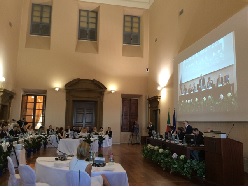
The Manifesto of Villa Mondragone outlines the role of universities in a world which still suffers hunger, poverty, wars, illiteracy. In the perspective of the 17 Goals of Sustainable Development, the mission of scientific institutions is to take care of knowledge as a vehicle for peoples’ exchange and cooperation.
Read more:
Economic impacts of child marriage: global synthesis report
Source: http://www.asvis.it, 4 July
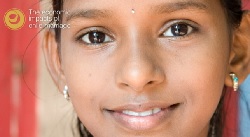
Child marriage not only does affect the entire life of girls and their rights but bears also costs economically valuable for its impact on fertility and population growth, on the health and nutrition of young mothers’ children, on their educational attainment, thereby on their earnings expectations.
Reducing global poverty through universal primary and secondary education
Source: http://www.asvis.it

The global population still excluded from education amounts to 264 million. Lack of education is essential to poverty. Only two years more of schooling would help 60 million people to come out of poverty. Education strengthens equality among people and helps to establish robust democracies.
Narrowing the gaps. The power of investing in the poorest children
Source: http://www.un.org
![]()
The poorest children are at greatest risk of dying before reaching their fifth birthday. Saving millions of lives requires low-cost health interventions, that help also to break intergenerational cycles of poverty because a healthy child makes it better at school.
Read more:
https://www.unicef.org/publications/files/UNICEF_The_power_of_investing_in_the_poorest_children.pdf
An Atlas for the End of the World
by Richard Weller, Claire Hoch, Chieh Huang
Source: Scientific American, 29 June

At the end of the world object of exploitation and colonization, this atlas maps the places of biodiversity most threatened and most protected on Earth. It is not the apocalypse, but the fall of the human right to see the Planets resources as his possession.
Read more:
https://blogs.scientificamerican.com/observations/an-atlas-for-the-end-of-the-world/
Un quinto dell’Italia a rischio desertificazione
Source: http://www.asvis.it/
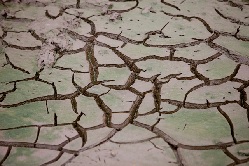
The climate change is in acceleration and one-fifth of the Italian territory is at risk of desertification; furthermore, Italy consumes 30% of available and renewable water resources, above the threshold established by the EU. The drought has hit also the WWF reserves.
Read more:
http://www.wwf.it/news/notizie/?31300/Giornata-Mondiale-desertificazione
WMO and FAO stenghten cooperation on climate change, drought
Source: http://www.asvis.it

The FAO and the World Meteorological Organisation have signed an agreement of cooperation because of this year’s global extreme temperatures, to prevent the consequences of heat waves on food security that farmers and rural communities irreversibly suffer.
Read more:
https://public.wmo.int/en/media/news/wmo-and-fao-strengthen-cooperation-climate-change-drought
Info
- Pubblicato il : 19/12/2017 Modificato il : 04/04/2019
Allegati
- France could face mega-heatwaves pdf
- Sustainable Europe for citizens pdf
- Slow climate mode pdf
- World economic and social survey pdf
- White Paper pdf
- Risoluzione del Parlamento europeo pdf
- Highend climate change in Europe pdf
- Cynical climate change divide pdf
- Reducing poverty through education pdf
- Child marriage pdf

